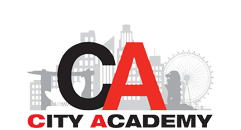The aim of this paper is to develop candidates’ understanding of the critical aspects of managing an assurance engagement (including audit engagement): accepting, planning, managing, concluding and reporting.

The aim of this paper is to develop candidates’ understanding of the critical aspects of managing an assurance engagement (including audit engagement): accepting, planning, managing, concluding and reporting.
On completion of the Audit and Assurance module, students will be able to:
There are 6 short-form questions (varying between 2 and 4 marks each) and worth a total of 20 marks and 3 long-form compulsory questions to answer (2 worth around 20 marks and 1 worth around 40 marks). Audit risks and procedures are usually the subject of the big mark-earning question in the paper. Questions on ethical matters feature regularly in the exam as do questions on the audit report. This paper is good at challenging a candidate’s knowledge (worth 25-35%) of the overall marks as well as their ability to apply their skills (worth 75-75%).
You must know “The Ethical Standards”. You must be able to plan an audit and know what to do to collect sufficient and appropriate evidence. You will be concerned with materiality and subsequent events and going concern issues. You must also know the Audit Report layout and audit opinion modification situations and the recent changes that have been introduced into the Audit Report.
You must know your Auditing Standards and familiarise yourself with the Open Book (this is the ICAEW auditing standards book). Audit is not the only type of assurance. Consider also non-audit engagements (profit and cash flow forecasts) and be able to distinguish between the audit of profit and not-for-profit entities. You have a lot to do, not only to learn but to practise questions to make sure you improve your approach and style and tailor your knowledge to the specific scenario in any of the questions- wrote learning sections of the material will not be enough to pass the exam.
Course Objective and Approach
The course is planned to prepare you for success in the Audit and Assurance exam. This is our key objective. We assume that you have done some preparatory work prior to the commencement of the course and that we can build on this through the duration of the course. This assumes you have completed and passed or attained a relevant exemption from the ICAEW Certificate Assurance paper.
The course will consist of 2 phases – a recorded phase (7 sessions) and a revision phase (6 sessions).
Lectures will follow the content of BPP course notes and will include extensive practice on questions from the ICAEW Question Bank, even during the taught phase.
You will be given Mock Exam 1 (ME 1) towards the end of the Recorded Phase.
You will be given Mock Exam 2 (ME 2) towards the end of the Revision Phase.
City Academy’s tutors will mark and review your ME scripts so as to benefit your learning outcome.
You will have the flexibility of practising the ME at your own time at home but you must submit your ME answer scripts by the due date set. You may also be given homework, assignments or additional reading materials.
The course is interactive and you will be encouraged to participate in class discussions.
“Completeness” is a key audit assertion. To meet the key course objective of exam success you need to be complete in your exam preparation. The course is aimed at exposure/coverage to/of most significant exam matters, and focuses on how these matters will be examined and prepares you with question practise and tips in answering this ICAEW paper.
You will be expected to attend all lectures and any supplementary tutorials, complete all course assignments and sit for and submit all ME answers.
Through face-to-face classes, City Academy helped our students achieve high pass rates for the advanced level papers in Strategic Business Management and Corporate Reporting and enabled Ms Lim Jia En to achieve a high score of 96% in Audit Assurance exam.
© 2025 coursetakers.com All Rights Reserved. Terms and Conditions of use | Privacy Policy